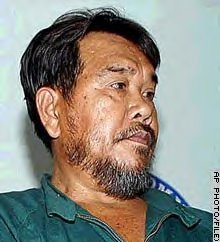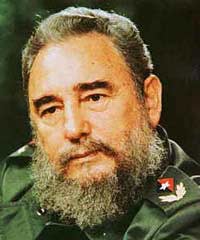Christian Roots Of Zionism
I agree, nevertheless, I think it is important to establish the Christian links to Zionism. These links are well documented. I bring up the subject so that we could discuss the motivations behind this linkange if any? Please consider the material below as a starting point.
Ok, I remember reading about the Christian roots of Zionism on pccasion. I am not suggesting that those who settled in Palestine were Christians. The point being made here is that Zionism is a Christian European project with its roots in Western civilization. Many Christians in France and Britain were the nurturers of the notion. "Jews" latched on to the idea centuries later. I present but a few examples I was quickly, able to come across the web, which instruct on the Christian roots of Zionism.
The pagan Roman Emperor Julian began the project of restoring the Jews to Jerusalem and rebuilding the temple. He fell in battle before the project could be completed, and subsequent Christian emperors abandoned the project.
http://www.mideastweb.org/britzion.htm
However, with the rise of Prstestantism and the Enlightenment brought a spirit to Europe wherein, support grew for restoration of the Jews as the rightful owners of "the Holy Land." This movement was nourished by many sources, not all favorable to the Jews. The theology of some branches of Protestantism posits that the second coming of Christ would only come only after the Jews were reestablished in their land. Antisemites believed that establishment of a Jewish homeland would be a convenient way to rid Europe of Jews. Imperialists hoped that a Jewish Palestine would be an excuse for a British protectorate there, and might serve as a solution for the "Eastern Question."
The idea of Jewish restoration was not alien to British culture. In 1621, the British MP Sir Henry Finch wrote a book entitled "The World's Great Restoration." He encouraged Jews to reassert their claim to the Holy Land, writing, "Out of all the places of thy dispersion, East, West, North and South, His purpose is to bring thee home again and to marry thee to Himself by faith for evermore." However, the idea remained dormant until the enlightenment and the rise of nationalism in the 19th century coincided with the full bloom of British Imperialism.
In 1799, Napoleon issued a proclamation promising to restore Palestine to the Jews, as he was camped outside Acre. Though Napoleon was forced to withdraw from Palestine, the idea had been planted and took root in British soil. For religious, or humanitarian or philosophical or imperialist motives, prominent Britons learned Hebrew, wrote novels about restoration of the Jewish commonwealth, began settlement and exploration societies and advocated restoration of the Jews in public and in private. Among the advocates we may include Lord Lindsay, Lord Shaftesbury Lord Palmerston, Disraeli, Lord Manchester, George Eliot, Holman Hunt, Sir Charles Warren, Hall Caine and others. Shaftesebury was probably responsible for the phrase "A country without a nation for a nation without a country," later to become the Zionist slogan "A land without a people for a people without a land." He asserted, " There is unbroken identity of Jewish race and Jewish mind down to our times; but the great revival can take place only in the Holy Land."
Lord Lindsay wrote:
The soil of "Palestine still enjoys her sabbaths, and only waits for the return of her banished children, and the application of industry, commensurate with her agricultural capabilities, to burst once more into universal luxuriance, and be all that she ever was in the days of Solomon. ( Crawford, A.W.C. (Lord Lindsay), Letters on Egypt, Edom and the Holy Land, London, H. Colburn 1847, V II, p 71).
Charles Henry Churchill, a British resident of Damascus, also became a zealous propagator of the creation of a Jewish State in Palestine. In 1841 he wrote a letter to the Jewish philanthropist Moses Montefiore in which he stated: "...I consider the object to be perfectly obtainable. But, two things are indispensably necessary. Firstly, that the Jews will themselves take up the matter unanimously. Secondly, that the European powers will aid them in their views..."
In 1839 the Church of Scotland sent Andrew Bonar Robert Murray M'Cheyne, to report on "the Condition of the Jews in their land." Their report was widely publicized in Great Britain and it was followed by a "Memorandum to Protestant Monarchs of Europe for the restoration of the Jews to Palestine." This memorandum was printed verbatim in the London Times, including an advertisement by Lord Shaftesbury igniting an enthusiastic campaign by the Times for restoration of the Jews.
In August 1840 the Times reported that the British government was considering Jewish restoration. It added that "a nobleman of the Opposition" (apparently Lord Shaftesbury) was making inquiries to determine:
1. Jewish opinion of the proposed restoration.
2. Jewish readiness to live in Palestine and invest their capital in agriculture.
3. How soon they would be ready to go.
4. Whether they would pay for their own passage, given assurance of safety to life and property.
5. Whether they would be willing to live under the Turkish rule, protected by Britain, France, Russia, Prussia, Austro- Hungary.
Lord Shaftesbury was the most active restoration lobbyist. 'The inherent vitality,' he wrote, 'of the Hebrew race reasserts itself with amazing persistence. Its genius, to tell the truth, adapts itself more or less to all the currents of civilization all over the world, nevertheless always emerging with distinctive features and a gallant recovery of vigor.
Lord Shaftesbury lobbied for the idea with Prime Minister Palmerston and his successors in the government and was incidentally instrumental in the considerable assistance and protection against oppression that Britain henceforth extended to the Jews already living in Palestine.
Sir George Gawler, a hero of Waterloo, urged the restoration of the Jews as the remedy for the desolation of Palestine. In 1848 he wrote, "I should be truly rejoiced to see in Palestine a strong guard of Jews established in flourishing agricultural settlements and ready to hold their own upon the mountains of Israel against all aggressors. I can wish for nothing more glorious in this life than to have my share in helping them do so." Gawler formed a Palestine colonisation fund to help the work of settlement.
In her novel, Daniel Deronda (1876), George Eliot advocated, "the restoration of a Jewish state planted in the old ground as a center of a national feeling, a source of dignifying protection, a special channel for special energies and an added voice in the councils of the world."
The restoration movement fed off the nascent Jewish nationalist movement Colonel Churchill in Damascus was influenced by Montefiore, who had been trying to secure a Jewish homeland in Palestine from the Mehmet Ali, the Khedive of Egypt. Ali was not opposed, but he was deposed shortly thereafter. George Eliot's Daniel Deronda reflected her thorough grounding in the work of the Jewish historian Heinrich Graetz, who believed in national restoration of the Jews in their own land.
F. Laurence Oliphant (1829-1888), MP and Evangelical Christian, was a follower of Lord Shaftesbury. In 1880 Oliphant published a book entitled The Land of Gilead, urging the British Parliament to assist the restoration of Jews to Palestine from Russia and Eastern Europe, and advocating that Palestinian Arabs be removed to reservations like those of the North American Indians.
The interest of Britain in Palestine expressed itself in the "capitulations" won from the Turks, allowing them to place missions there and to found charitable works such as hospitals, settlement colonies and exploratory surveys like those of Conder. In fact, there were over a 1,000 British travelogues and surveys of the Middle East in the 19th century. Such exploratory travels, as in the case of famous explorers such as Burton and Livingston, usually preceded British imperial involvement in a region. Toward the end of the nineteenth century, British interest in the Middle East increased, because it was considered essential to guard the route to India and to guarantee the stability of the Turkish empire against Russian and other imperialist threats. Settlement of Jews in Palestine was offered first as a way to bolster the faltering Turks and help guarantee the security of the Suez canal. The idea which had seemed utopian became a more or less respectable and acceptable project.
The point here is to further establish and put into context that the Zionist movement was at the onset and continues to be a colonialist emdeavor.
http://www.campus-watch.org/article/id/1770
Zionism's insistence that European Jewish colonial settlers in Palestine were White Europeans is as old as Zionism itself. In his magnum opus, Der JudenStaat (The State of the Jews) published in 1896, Herzl unabashedly identified the Zionist state to be "the portion of the rampart of Europe against Asia, an outpost of civilisation as opposed to barbarism". When negotiating later with the Portuguese Ambassador Count Paraty to locate an African territory to be colonised by European Jews (most likely Mozambique), Herzl asked Paraty to inquire of the Portuguese government the following: "Is there a territory sufficiently habitable and cultivable by Europeans?"
Quote from Non-Jewish Zionism: Its Roots in Western History
by Regina Sharif
http://www.amazon.com/gp/product/0862321514/102-4053136-5516141?v=glance&n=283155
Moreover, just as 'Palestine' was a construct of European Christian scholarship, so the principle sources for information on the subject, Jewish, Classical pagan and Christian, were also largely the exclusive preserve of European Christian scholars, thanks, largely, to the Roman Catholic Church.
This is an outright racist article however, it shows nascent Zionist firmly suckling in the bossom of Christiany.
http://christianactionforisrael.org/annals_cz.html
Jewish figures as Pinsker, Nordau, and Herzl in the late 19th century. But there already existed in Europe Christian Zionists who, recognizing the continuing plight of Jews as a stateless people and, in many cases, inspired by the Old Testament, began to discuss and promote the idea of a Jewish return to Zion.
In her riveting study, Bible and Sword, the historian Barbara Tuchman traced the origins of Christian Zionism in England, from the earliest days to its full flourishing in late Victorian England. It was there that Christian Zionists won the earliest converts, including such powerful spokesmen as the writers George Eliot (Daniel Deronda), Laurance Oliphant, and the lesser-known Charlotte Elizabeth (Judea Capta), important statesmen such as Lord Salisbury and Lord Shaftesbury, and military men such as Colonel Churchill, all of whom were inspired by a vision based on Biblical history that led them to investigate the possibilities of making that vision real. Through speeches and writing, they promoted the restoration of a Jewish commonwealth in what, since Roman times, had been known to Western Christendom as the Holy Land or Palestine, a forsaken place divided under Moslem rule into various Ottoman administrative units, or vilayets.
In addition, to further substantiate the European roots of Zionism, consider this passage: Passage from: A Basic History of Zionism and its Relation to Judaism-
http://www.robincmiller.com/articles/hanna1.htm
There had been a number of revolts and uprisings against their hegemony and their collaboration with Rome, Jesus was one non violent example, and so they decided to leave when the Romans pulled out. Most of the indigenous subsistence farmers, craftsmen and small-time traders stayed put and continued their lives as before. Some of these inhabitants were early Christians and form the ancestors of today's Palestinian Christians, others remained Jewish. Modern research suggests that when Islam arrived in the area in 638 AD many of these Jews converted and that they form a considerable part of today's Palestinians. Numerous surnames, such as Mousa, Dini and Canaan, are even nowadays shared by Arab Jews, Muslims and Christians. Incidentally, people with the surnames Da Souza and Sassoon were originally from the Jewish community in Suza, the ancient capital of Persia. Those who left with the Romans later dispersed to other parts of Europe and even central Asia, where there were some trading outposts. The bulk of European Jews, however, consisted of Khazars, inhabitants of an important kingdom in the early middle ages, roughly between the Caspian and the Black sea. One of their Khans or kings converted to Judaism around 740 AD and made Judaism the state religion. In the 9th century Khazaria finally fell to the Viking hordes and its inhabitants dispersed throughout much of Europe. Thus the idea of a "return" of European Jews to their roots is an absurd myth.
The financing and membership of the Zionist project may have been Jewish (French - British financing ... most members Eastern Europeans ) nevertheless, the reformantion of the Jew to Palestine was a Christian idea that emerged with Protestantism and the Enlightenment -- strenghened and eventually, realized with the amassed wealth [and the power it yielded ] from mercantilism, colonialism and slavery--beginning in the early 15th century.
Lastly, see also, Lovers of Zion: A Brief History of Christian Zionism by Thomas Ice, which places this Christian support for Zion as far back as the 2nd century AD but becoming more avid in the 12th century.http://www.ifca.org/voice/05Mar-Apr/ThomasIce.htm








